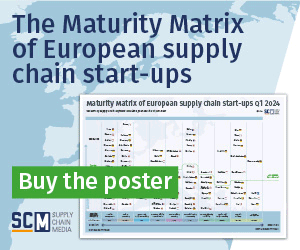Worldfavor publishes report on human rights in the supply chain

When it comes to human rights, there is still a gap between the measures prescribed by the European Union and the measures taken by companies in practice, according to Frida Emilsson, COO of sustainability platform Worldfavor. The organization has published the findings from its recent survey in a report titled ‘The state of human rights due diligence in the supply chain’.
The Worldfavor platform enables companies to collect, manage and share sustainability information. It connects organizations worldwide so that they can gain insight into their own and each other’s sustainability and compliance data. The latest report aims to shed light on how companies currently manage human rights in global supply chains, the challenges they face and what motivates them to conduct due diligence.
“We are pleased to map out the state of human rights due diligence at a time when there is a huge amount of national and EU-wide legislation being introduced in this area. We notice a growing interest in this among our clients and within society. Nevertheless, there is still a lot of work to be done to achieve our common goal of ensuring the health, safety and well-being of workers and improving the conditions of the most vulnerable within global supply chains,” comments Emilsson.
Findings from the survey
The survey shows that 78% of all organizations have a human rights policy in place. 43% say that limited resources are the main challenge to managing human rights within their supply chains. Two in five companies do not have a human rights due diligence (HRDD) process in place, even though this is one of the threshold requirements for EU Group 1 companies. Meanwhile, 56% find it difficult to obtain information about human rights from their suppliers.
Furthermore, the report shows that 39% of companies use direct communication channels such as email to collect and manage supplier data. Six in ten companies have assigned responsibility for ensuring supply chain sustainability to a person or a team. In addition, 39% indicate that wanting to comply with legislation and regulations is their main driver for adopting a human rights due diligence process.
Insight into the supply chain
The first and most important step towards achieving better human rights is to gain insight into what is happening within the supply chain, explains Emilsson: “Needless to say, companies have limited resources for carrying out human rights due diligence and this is confirmed by the survey results. There is still a gap between the measures prescribed by the European Union and the measures that companies take in practice. We hope that this issue will soon become a greater priority; we are pleased that Worldfavor can help companies on their way.”









